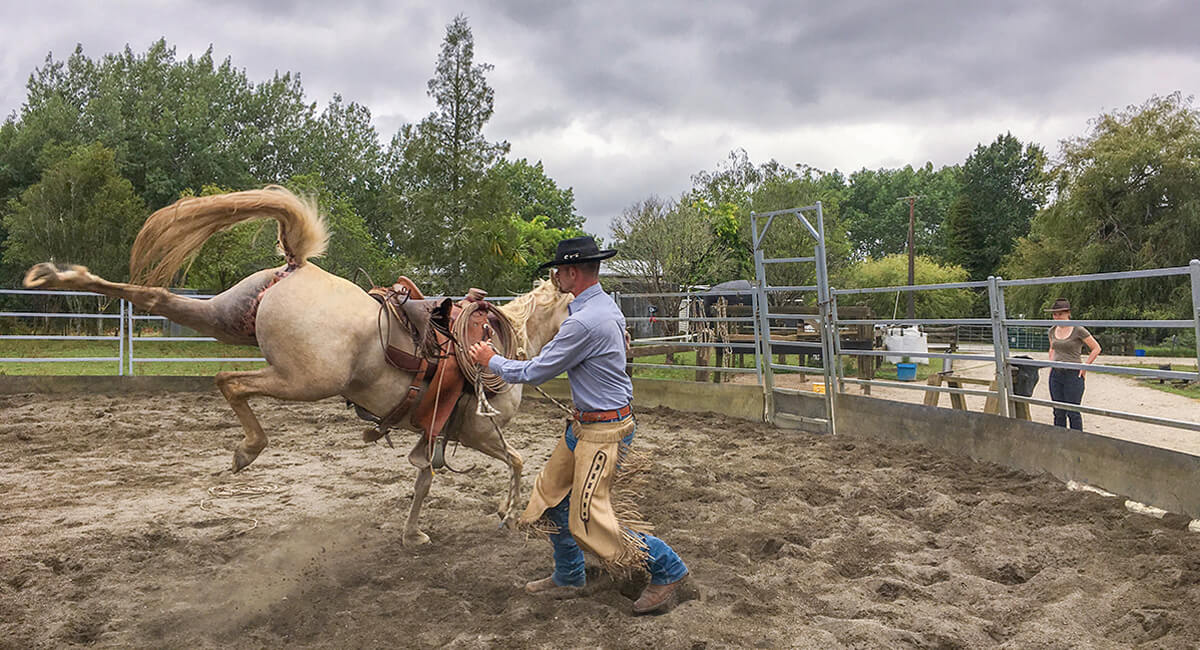Good Training Focuses on the Mental and Emotional State of Horses
Many times, as we work with our horses we have a physical goal in mind—we want them to accomplish something specific such as getting in the trailer, standing still or moving when told, or performing a flying lead change. There’s nothing wrong with this—actually, it’s good to have some sort of a plan or purpose if we hope to progress, although there’s nothing wrong with just hanging out with horses either.
The problem arises when we focus too much on the achievement of the physical outcomes without recognizing either the mental or emotional state of our horses and seeing how this affects the quality of their work, often resulting in reactive or resistant behavior.
We may not recognize these qualities in what they’re doing if we’ve always been around horses operating this way, and especially when they’re doing the “right” things. Oftentimes, the horse does what we want them to do. But if they are lacking understanding and/or trust, it may be reactive or resistant instead of truly responsive. As humans, we typically focus most on the physical outcome of what we’re trying to achieve and may not pay much attention to how it’s being done.
To peel this back a little further, we have to explore the way we try to motivate our horses. Without thinking about it, many times our approaches have been based in ways that rely on force or fear to motivate the horse to do a particular thing. Historically, I think this has been the case the majority of the time and it’s a testament to the cooperative and willing nature of the equine that mankind has been able to accomplish so much with and through them.
What we are looking for is thoughtful and willing responses based in trust and understanding. This takes into account the mental and emotional state of our horse, moment by moment, and recognizes the “pieces” that make up the whole of any given task.
We can learn a lot from adapting our approach with horses and applying it to other areas of our life. People can also be motivated through force or fear, and the techniques used to create these emotions often cause a poor decision-making paradigm. Any relationship is only going to be as strong as the quality of communication it’s based on, and force or fear are not good bases of communication. Horses can help some of us learn to be more clear and decisive and others of us to be more patient and empathetic. They can strengthen our relational and communication skills, improving our human interactions.
But it starts with us being able to slow down, dissect our approach, and make sure our horses are okay on the inside, not just doing “stuff” on the outside. Another way I put it is to address the how, when, and why of our communications, instead of focusing wholly on the what. Ultimately, then, we can achieve the physical outcomes, but they have the quality of true response.
See this article in the October 2024 Online Digital Edition:
October 2024

Ben Longwell of Pendleton, Oregon, operates True West Horsemanship with the mission to advance people in the adventure of practical horsemanship and help them and their horses achieve more together. With a passion for the Vaquero bridle horse tradition, Ben teaches a variety of clinics around the world and has a unique online video library so anyone—regardless of breed or discipline—can advance their communication, skill, and understanding. www.truewesthorsemanship.com


